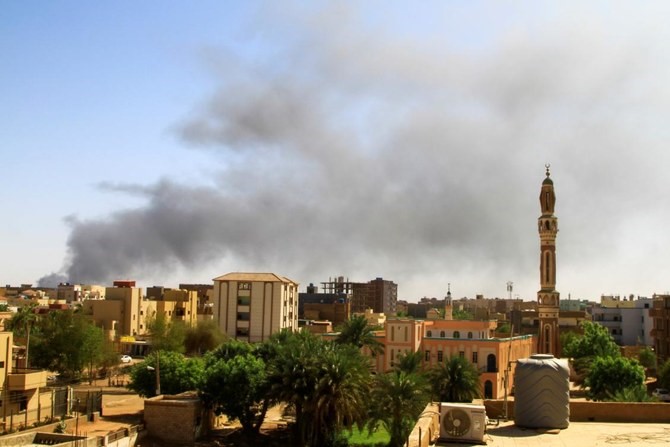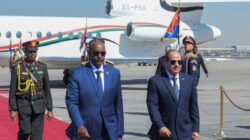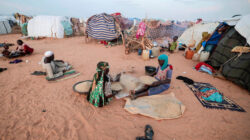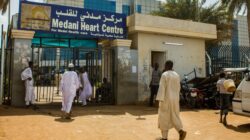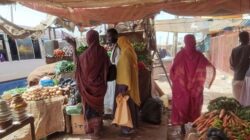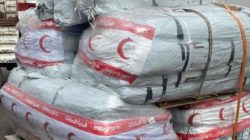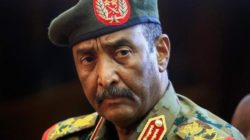DUBAI – The Sudanese army launched air strikes in the north of the capital Khartoum on Monday, targeting paramilitaries near a hospital, which witnesses said was damaged in the bombing.
Despite Saudi and US-brokered discussions between the army and the paramilitary Rapid Support Forces (RSF) in Jeddah aimed at securing humanitarian access and a cease-fire, fierce clashes have raged in Khartoum and its sister cities of Bahri and Omdurman.
The conflict has moved to Darfur’s western area, but has been centered in the capital, where RSF forces have taken up positions across neighborhoods and the army has targeted them with air strikes and heavy artillery fire.
“We’re under heavy bombardment now in Sharq el-Nil and Rapid Support are responding with anti-aircraft guns,” said 55-year-old Awatef Saleh, referring to the area she lives in along the Nile in Bahri. “All this is happening near our homes, we’re in a state of terror and fear.”
In a voice message produced by the RSF, its leader, Mohamed Hamdan Dagalo, also known as Hemedti, denied being killed or injured in the fights.
“I am moving freely around my forces, I am present in Bahri, I am present in Omdurman, I am present in Khartoum, I am present in Sharq Al-Nil,” Hemedti said.
“They are spreading rumors that Mohamed Hamdan has been killed, and these are all lies that show that they are being defeated … I am thank God present with the troops,” he said.
Following the 2019 ouster of previous President Omar Al-Bashir amid a popular uprising, Army Chief General Abdel Fattah Al-Burhan and Hemedti controlled the leading posts on Sudan’s ruling council, and attempted a coup two years later as a deadline to hand over power to civilians approached.
Disagreements over preparations for the RSF to join the army and the chain of command in a new political transition sparked the war.
It has forced over 200,000 people to escape to neighboring countries and over 700,000 to be displaced within Sudan, resulting in a humanitarian crisis that threatens to destabilize the region.
Those who remain in Khartoum are fighting for their lives.
“Goods are slowly disappearing, the stores are emptying out,” said Mohamed, a resident in an area of Omdurman not yet hit by fighting. “Famine is coming for sure. If we aren’t killed by the war, we’ll die from the insecurity or hunger.”


